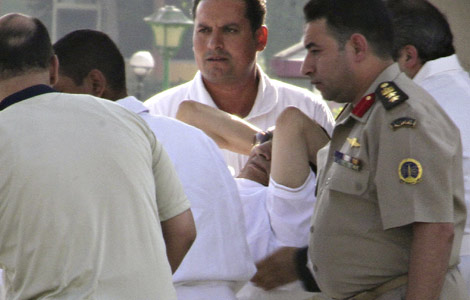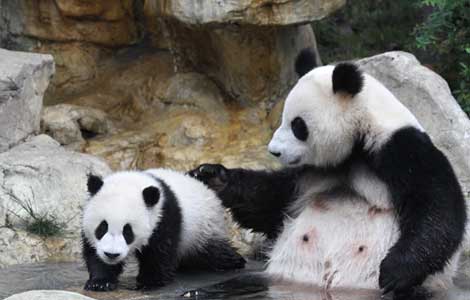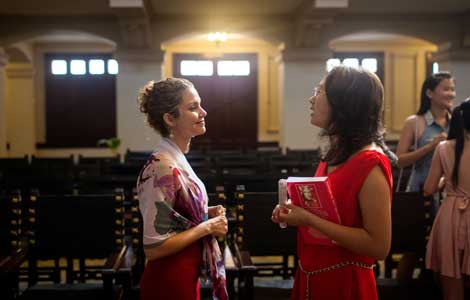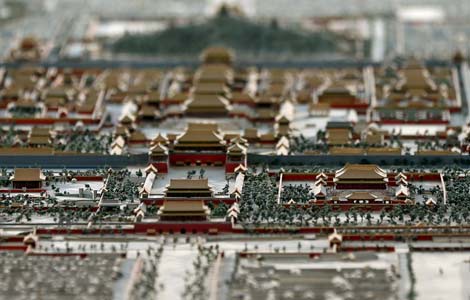
Master Chef China judge Steven Liu took a long road to the top.
Chef Hell doesn't seem like such a devil in person.
Steven Liu, executive sous chef of the Fairmont Peace Hotel in Shanghai, is visiting Beijing in his newest role, "Culinary Ambassador China" for the entire hotel chain. Relaxing in a comfortable suite, he casts a slightly wary eye to the video camera. Can the critical judge who makes contestants cry on TV's Master Chef China be nervous?
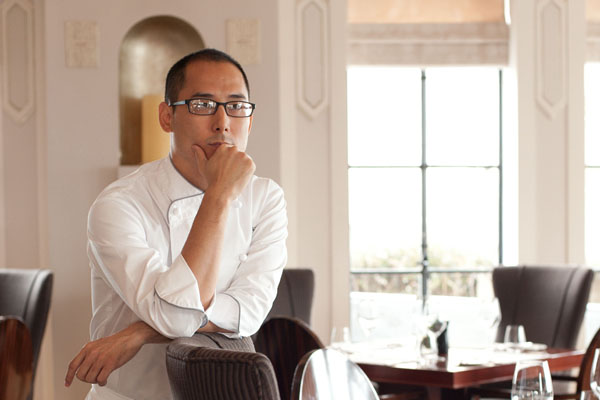 |
|
Celebrity chef Steven Liu boasts diverse experience in kitchens around the world.Provided to China Daily |
Projecting a corporate brand is a newer role than judging kitchen work, but Liu adjusts his tie and projects a cool and collected aura in a dark Western suit.
His background fits his current task neatly: The youngest executive chef in China, the Taiwan native boasts diverse experience in kitchens from Bali to Bangalore to Taipei to London — and now pretty much anywhere Fairmont has a hotel.
He got his first restaurant job pretty much by accident, at an American fast-food restaurant he was "just passing by when I was 15 or 16, looking for a job in the neighborhood".
What attracted him? "Lots of interesting foods. I still remember the talk about ‘macaroni and cheese' — I didn't know what is that — in Chinese it doesn't exist! The couple who owned it thought their new hire was ‘a funny boy, asking lots of questions about the food and the culture over in the States'."
As a child, Liu enjoyed being in the kitchen whenever his mother was cooking. But his passion may come from his father's genes, too.
Liu's father was a cruise-ship captain, rarely at home because of his long voyages. But when he was ashore, he loved to bake.
"I can remember him waking us all up at midnight to taste a Black Forest cake he'd made," Liu says, chuckling.
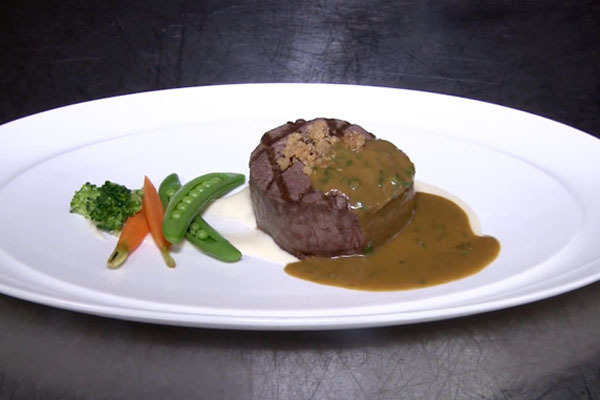 |
|
Steven Liu's creations show his eagerness to preserve culinary traditions but give them a new twist.Photos by Fan Zhen / China Daily |
He enrolled in Taiwan's top culinary school and was soon asking himself, "what would I like to be in the next 10 or 20 years?"
"I had lots of classmates staying in their comfort zone: Chinese cuisine. But I went for the most difficult: French cuisine — culinary art! This required lots of study, especially studying English," he says. "A lot of what I needed to know was published in French, so I started studying that, too."
Stanley Yen, a famous hotel CEO chairman, was a mentor and friend at that time. Yen said he could "smell" Liu's talent, telling him he could "go a long way" if he got on the right track. "But use your talent to go abroad," Yen told his protege, "and learn as much as you can."
So young Liu jumped at a job offer in Indonesia, and didn't get frustrated when his bosses at Bali's Club Med first put him to work as a scuba-diving instructor. He saw it as experience learning and working with a foreign culture and the corporation's Western corporate mindset.
The luckiest day of his life came when he was back working in Taipei, and London's classy Savoy hotel launched an exchange with the hotel where Liu was working, bringing a monthlong introduction to British afternoon tea to Taipei.
Liu says he attached himself to the visitors like a barnacle, helping them organize and set up, running market errands for them, and asking a thousand questions.
The night before the British hotel team returned home, the managing director asked, "Steven, would you like to come to London, to work for the Savoy?"
Liu says he didn't take the suggestion that seriously, imagining his resume at the legendary hotel in a pile of more qualified candidates. But two weeks later he had a firm offer, and he was heading to England.
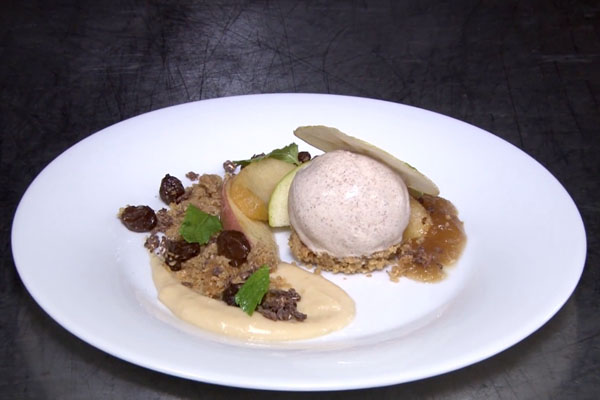 |
|
Steven Liu's creations show his eagerness to preserve culinary traditions but give them a new twist.Photos by Fan Zhen / China Daily |
The only Asian in a kitchen with dozens of chefs, he loved being part of a new environment within an old tradition.
"The British are very proud of their culture. Mince pie?" he asks rhetorically. "We've been doing it the same way since 150 years back, the same recipe, without thinking it could be changed to be more suitable for modern tastes. But we could, and we did."
Liu's eagerness to preserve culinary icons but give them a new twist stood him in good stead when he joined Fairmont — first in Dubai and later at the company's landmark Peace Hotel in Shanghai. It helped that the Peace Hotel's many traditions include its stature as an international meeting place, where East-meets-West.
That's why, for example, when Liu says he likes "pairing heavy European cuisine with a good quality Chinese white wine", he's probably talking about baijiu, not one of the growing number of good grape tipples now emerging from Chinese vineyards.
Likewise, he's planned other menus that paired Sichuan-style entrees with Old World whiskies. "That makes people smile — they may have never thought of pairing like that."
Liu sees himself as a champion of simplicity, an approach that he says makes good food shine.
Thanks to his time in Britain, he notes, he's even learned to love peas.
"Before, I hated peas," he says. "I thought they were for students, construction workers, for the army. People who ate lots of peas did that because they are cheap."
But peas taught him an important lesson: "You can use a simple element to make something special, even high-end cuisine."
Sometimes contestants on Master Chef China try too hard to be fancy or exotic. He's not impressed by a wokful of snake, for example, which he says happens "all the time".
So how to get high marks from Chef Hell?
"I think if you start to talk about FOOD and good food, it should be very simple and with great flavor," he says. "Use natural ingredients and methods to cook rather than put strange things on the plate."
While Liu gets a little kick about his TV persona, he doubts his reputation would surprise his present or past kitchen colleagues, among them is London's fiery chef Gordon Ramsey.
"In the industry kitchen, that's the way we actually act in the kitchen," Liu says. "We look for detail and passion for our cuisine and food. We do not allow any mistake — the guest will only give you one chance."

